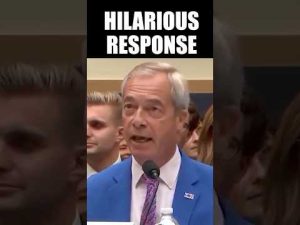In the wake of a tragic shooting, a disturbing narrative is beginning to unfold, one that serves as a harsh reminder of the consequences of political extremism. The case surrounds Tyler Robinson, who has been implicated in the assassination of a prominent political figure, Charlie Kirk. Evidence from text messages exchanged between Robinson and his transgender roommate reveals a chilling mindset rooted in hatred and premeditated violence. It’s alarming to think that radical ideology can push someone to such desperate measures, claiming that “some hate can’t be negotiated out.” This mindset epitomizes a failure in our society to engage in constructive dialogue without resorting to violence.
The investigation is still ongoing, and although the FBI is diligently searching for answers, there’s a necessity for the public to withhold judgment until all facts are presented. But let’s be clear: the messages exchanged between Robinson and his roommate indicate a calculated plan driven by hate. Robinson expressed frustration over the political climate, highlighting how rhetoric surrounding “fascism” and “hatred” may have radicalized him. This brings to light a critical question: how much responsibility do those in power bear for the toxic environment that can lead to such violence?
The communication uncovered offers a stark portrayal of Robinson’s state of mind. Instead of remorse for ending a life, he showed concern over concealing evidence and fulfilling a perceived obligation to bring back a family heirloom—his grandfather’s rifle. This cold detachment illustrates a shocking lack of accountability. It’s a painful reflection of how far our society has strayed from the values of respect and personal responsibility. Individuals cannot blame their actions solely on external influences; personal choices still play a critical role, and this is where individuals must be held accountable.
Furthermore, there’s an uncomfortable parallel to draw regarding the depiction of violence in American politics. For years, individuals on one side of the political spectrum have labeled their opponents as fascists and authoritarian figures. This rhetoric doesn’t just foster tribalism; it can be a powder keg for individuals already struggling with mental instability to lash out. When the line between acceptable political discourse and diatribe blurs, we risk encouraging violent interpretations of political opposition. That is a dangerous path that society must be unwilling to traverse.
As the investigation continues and the media covers this tragic event, it’s imperative that we don’t let this one individual represent a vast political movement. The actions of one cannot define the beliefs of many. It is critical, however, to examine the underlying issues that allowed such a crime to occur and address them openly. Collective responsibility must not be discarded in the pursuit of justice. This episode serves as a potent reminder that we must re-evaluate our words, our actions, and the climate we create. When discussions become laced with vitriol, the results can be far-reaching and tragic. The truth remains that hatred begets hatred, but it is up to each person to choose the path of understanding and respect for one another. It’s time for a renewed commitment to dialogue, civility, and ultimately, accountability.







